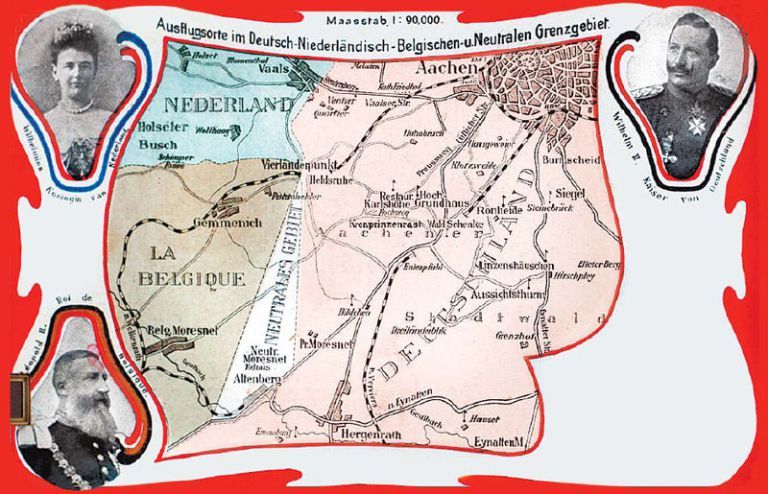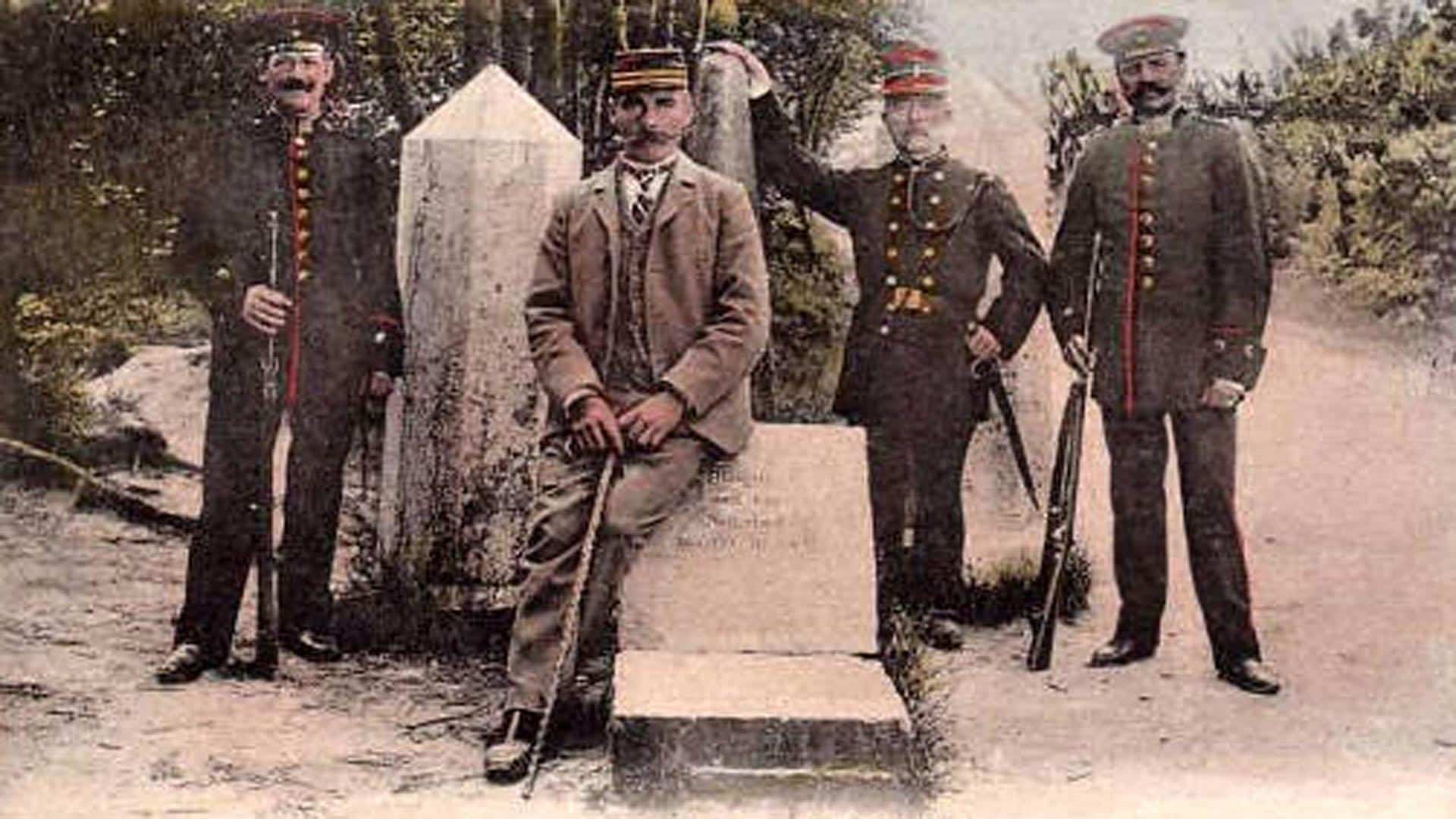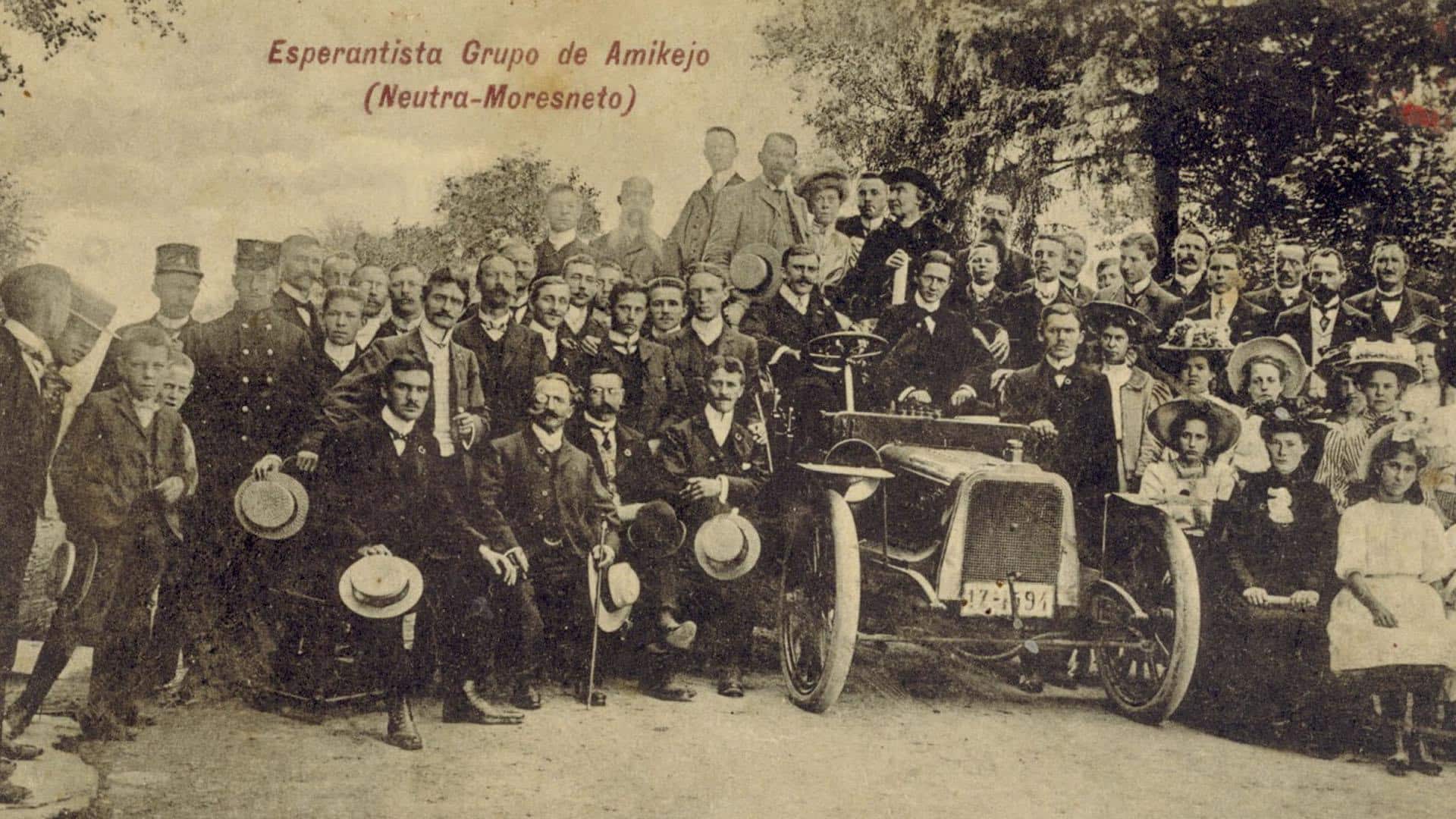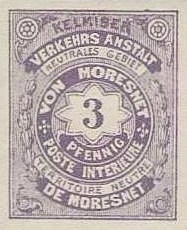Hundred Years Ago, Tiny Country Neutral Moresnet Became Part of Belgium
Between 1816 and 1919, Neutral Moresnet was a geographical curiosity on the border triangle between Belgium, the Netherlands and Germany. It was a micro-nation with its own borders, flag and stamps that had a status similar to Monaco or Vatican City. One hundred years ago, on 10 January 1920, the territory was incorporated by Belgium.
After Napoleon’s defeat at the Battle of Waterloo in 1815, the Congress of Vienna redrew the borderlines of many European countries. This was not always an easy process. On the borders of the newly established Kingdom of the Netherlands and Prussia, in the province of Liège, was the small village of Moresnet, today known as Kelmis.
The area of Moresnet proved to be very problematic for negotiations because both countries had their eye on Vieille Montagne, a profitable zinc mine that was located there. The only solution seemed to be to make the mine and village an independent territory. And so in 1816 Neutral Moresnet was born.
 Postcard showing Neutral Moresnet with the Dutch Queen Wihelmina, the Prussian Kaiser Wilhelm II and Leopold II of Belgium, 1901
Postcard showing Neutral Moresnet with the Dutch Queen Wihelmina, the Prussian Kaiser Wilhelm II and Leopold II of Belgium, 1901Neutral Moresnet was triangular in shape and about twice the size of Monaco, consisting initially of a village of about fifty houses, a church, the mine and 256 people.
The economy of Neutral Moresnet was heavily reliant on the mine. It was the principal employer and established schools, residences, shops, a hospital, and a bank. The territory benefited from low taxes, no import tariffs or customs checkpoints. Neutral Moresnet quickly became a haven for smugglers and escaped convicts.
Because the people of Moresnet, the so-called ‘Neutrals’, had no voting rights, they were considered to be stateless and were thus exempt from conscription into military service. This made it even more attractive to incomers. By the time Moresnet disappeared, its population had swelled to about 4,500 inhabitants.
 German, Dutch and Belgian customs officers at the four-country point
German, Dutch and Belgian customs officers at the four-country pointNot having its own legal system or mint, Neutral Moresnet adopted the Code Napoléon and the French franc. The currencies of Prussia (and then Germany after 1871), Belgium, and the Netherlands were also in circulation. Neutral Moresnet did start its own currency but this was always considered unofficial.
New Moresnet was governed jointly by royal commissioners from Prussia and the Netherlands at first. In 1830, when Belgium gained independence, they took over the claim on the Dutch side. The northern tip of the Moresnet triangle became thus the border of four nations.
When the zinc mine was exhausted of its resources and closed in 1885, doubts arose as to whether or not the territory would continue to survive. There were several attempts to establish the territory as a more independent identity.
 Meeting of Esperanto-speakers in Moresnet in 1908
Meeting of Esperanto-speakers in Moresnet in 1908A casino was opened in the territory in 1903. Belgium had forced all of its own casinos to close and the cunning Moresnetters spotted an opportunity. But the venture was ended by Kaiser Wilhelm II, who threatened to partition Moresnet or cede it to Belgium to end the gambling.
 Stamp of Neutral Moresnet
Stamp of Neutral MoresnetDoctor Wilhelm Molly, who had been chief doctor at the mine and was an avid philatelist, tried to create a local postal service with Moresnet’s own stamps. But his enterprise was eventually thwarted by Belgium. Molly also proposed to establish Neutral Moresnet as the world’s first Esperanto-speaking state. It would be called Amikejo, ‘place of friendship’. Supporters learnt the language and an anthem was composed. In 1908 the World Congress of Esperanto declared that Neutral Moresnet was the capital of Esperanto. But the efforts of Molly were in vain.
The First World War put an end to Neutral Moresnet. The Treaty of Versailles awarded Neutral Moresnet to Belgium, effective 10 January 1920, when the territory was annexed by the country to become the municipality of Kelmis. This put an end to a unique micro-nation.












